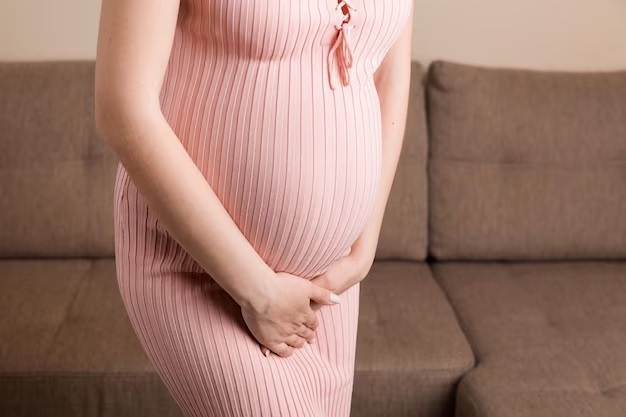Being a new mom is a life-changing experience, but it can also bring some unexpected and uncomfortable changes to your body.
One of the most common issues women face after giving birth is postpartum urinary incontinence. In fact, as many as 50% of women experience urinary leaking after childbirth, according to some experts. However, the good news is that postpartum incontinence is treatable, and there are many options available to help you regain control of your bladder.
In this comprehensive guide, we’ll explore the causes, symptoms, treatment options, and preventive measures for postpartum incontinence. Whether you’re currently experiencing this condition or want to learn more about it, this article will provide the information you need to make informed decisions about your health.
1. What is Postpartum Urinary Incontinence?
Postpartum incontinence is a condition where a woman experiences involuntary leaking of urine after giving birth. It is a common condition that affects many new mothers and can be caused by a variety of factors related to pregnancy and childbirth.
During pregnancy, the weight of the growing uterus can weaken the muscles of the pelvic floor, which are responsible for controlling the bladder. Additionally, the hormones produced during pregnancy can make the ligaments and muscles in the pelvic area more relaxed, which can contribute to urinary leaking.
During childbirth, the muscles and tissues of the pelvic floor can become stretched, damaged, or weakened, which can lead to postpartum incontinence. The risk of developing this condition is higher if you have a vaginal delivery, particularly if it’s your first delivery or if you have a long pushing phase during labour.
Urinary incontinence can be categorised into two types: stress incontinence and urge incontinence. Stress incontinence occurs when there is pressure on the bladder, such as when you cough, sneeze, or laugh. Urge incontinence occurs when you have a sudden, intense urge to urinate and can’t make it to the bathroom in time.
2. How Long Does it Last?
For most women, postpartum incontinence is a temporary condition that resolves within a few weeks to a few months after giving birth. However, for some women, it can last for up to a year or longer. In rare cases, the condition can become a chronic and persists for several years after giving birth.
The duration can vary depending on several factors, including the severity of the condition, the woman’s overall health, and the treatment options used.
3. Symptoms of Postpartum Urinary Incontinence
The most common symptom of incontinence in the postpartum period is involuntary leaking of urine. This can happen during activities such as coughing, sneezing, laughing, or exercising. Women may also experience a sudden, urgent need to urinate and may not be able to make it to the bathroom in time.
Postpartum incontinence can be embarrassing and affect a woman’s quality of life. It can also lead to skin irritation, urinary tract infections, and other complications if left untreated.
4. Risk Factors for Postpartum Incontinence
Several factors can increase a woman’s risk of developing this, including:
- Vaginal delivery: Women who deliver vaginally are more likely to experience postpartum incontinence than those who have a C-section.
- First delivery: Women who have their first delivery are more likely to experience incontinence than those who have had multiple deliveries.
- Prolonged pushing phase: Women who have a long pushing phase during labour are at a higher risk of developing urinary incontinence.
- Instrumental delivery: Women who have an instrumental delivery, such as forceps or vacuum, are more likely to experience postpartum incontinence.
- Age: Women over the age of 35 are at a higher risk of developing the condition.
- Obesity: Women who are overweight or obese are more likely to experience postpartum incontinence.
- Smoking: Smoking can increase the risk of postpartum incontinence.
5. Treatment Options for Postpartum Urinary Incontinence
The good news is that postpartum incontinence is treatable, and there are many options available to help women regain control of their bladder. The first line of defense is usually pelvic floor exercises, such as Kegels. These exercises help to strengthen the muscles of the pelvic floor, which can improve bladder control.
Other treatment options for postpartum incontinence may include:
- Bladder training: This involves scheduling your trips to the bathroom and gradually increasing the time between trips to help strengthen the bladder muscles.
- Medications: Certain medications, such as anticholinergics, can help improve bladder control.
- Pessary: A pessary is a device that is inserted into the vagina to support the bladder and prevent urinary leaking.
- Surgery: In severe cases, surgery may be necessary to repair the muscles and tissues of the pelvic floor.
It’s important to talk to your healthcare provider about the best treatment options for your specific situation. They can help you determine the most effective treatment plan based on your symptoms, medical history, and overall health.
6. Preventive Measures
While postpartum incontinence is not entirely preventable, there are several steps you can take to reduce your risk of developing this condition.
- Pelvic floor exercises: Doing Pilates regularly before and during pregnancy can help strengthen the muscles of the pelvic floor and reduce the risk of postpartum incontinence.
- Maintaining a healthy weight: Being overweight or obese can increase the risk of postpartum incontinence. Maintaining a healthy weight before and during pregnancy can help reduce this risk.
- Avoiding smoking: Smoking can weaken the muscles of the pelvic floor and increase the risk of postpartum incontinence.
- Preparing for delivery: Taking childbirth education classes and discussing delivery options with your healthcare provider can help you prepare for delivery and reduce the risk of postpartum incontinence.
Core Fitness: Your Partner in Postpartum Health
If you’re experiencing postpartum incontinence, you are not alone. It’s a common condition that can be treated effectively with the right care. At Core Fitness, we specialise in providing holistic treatment for postnatal issues, including postpartum incontinence.
Our team of expert physical therapists will work with you to develop a personalised treatment plan that addresses your specific needs and goals. We use state-of-the-art techniques and technologies to help you regain control of your bladder and improve your quality of life.
Don’t let postpartum incontinence hold you back. Contact us today to schedule an appointment and start your journey towards better postpartum health.


